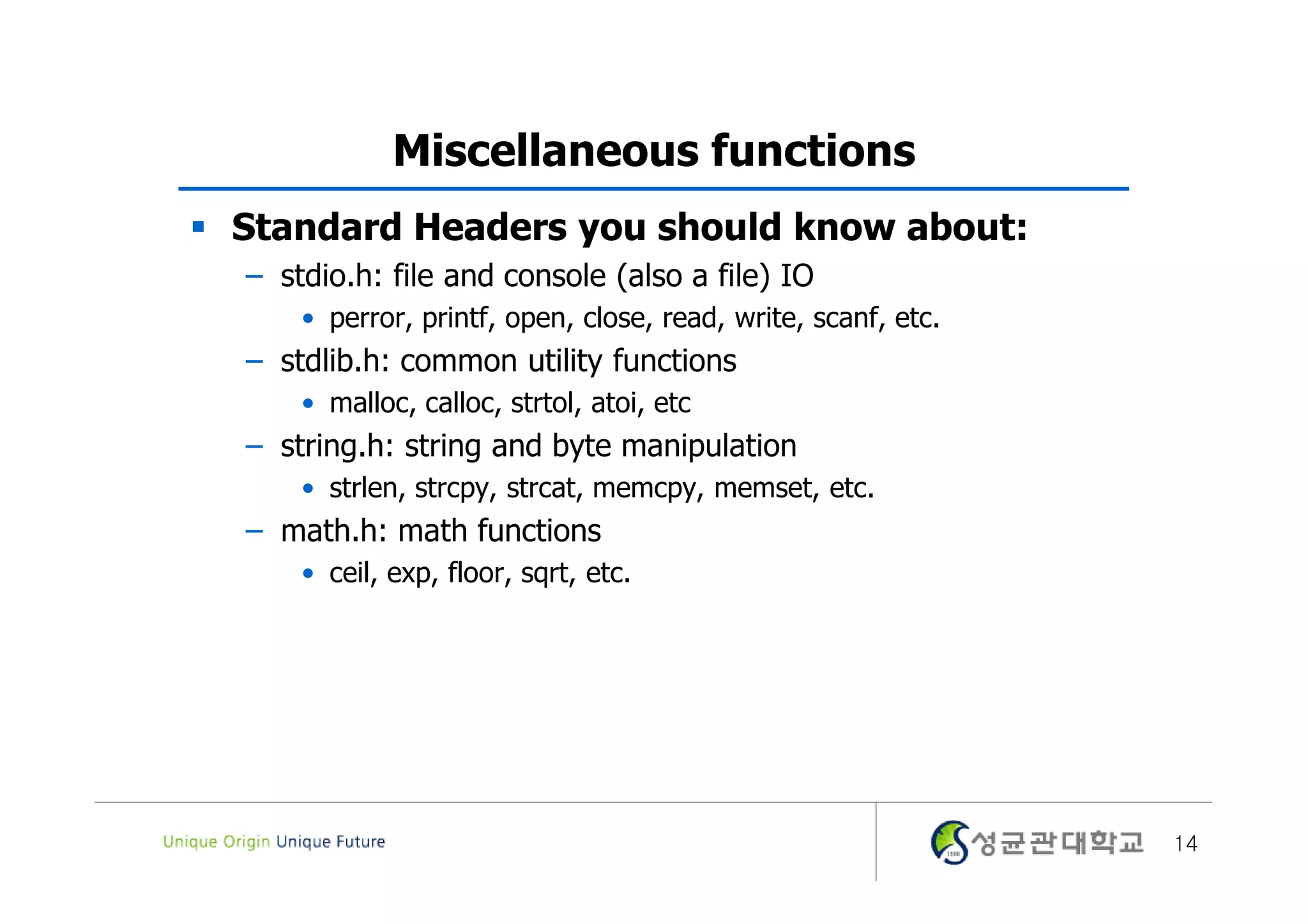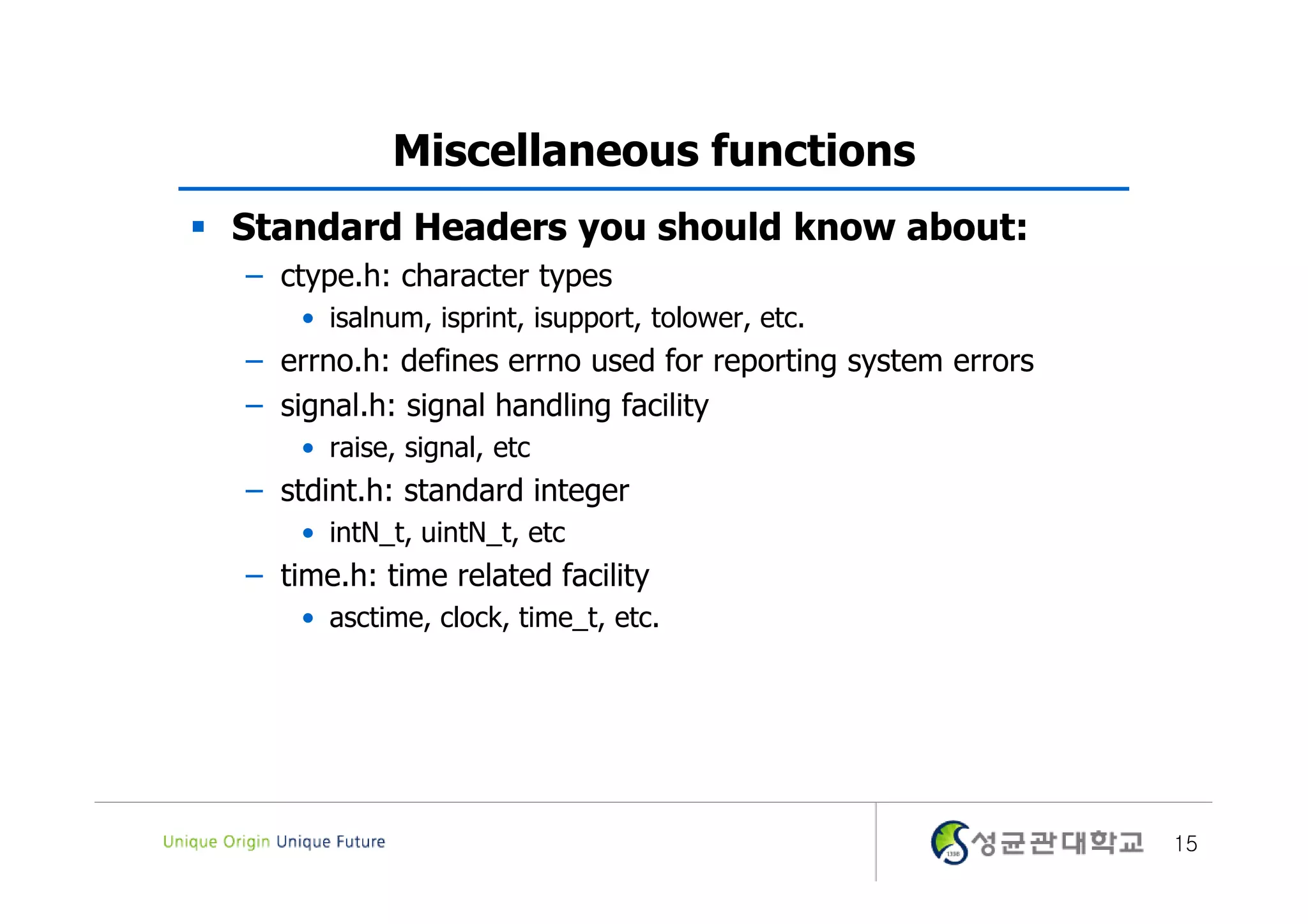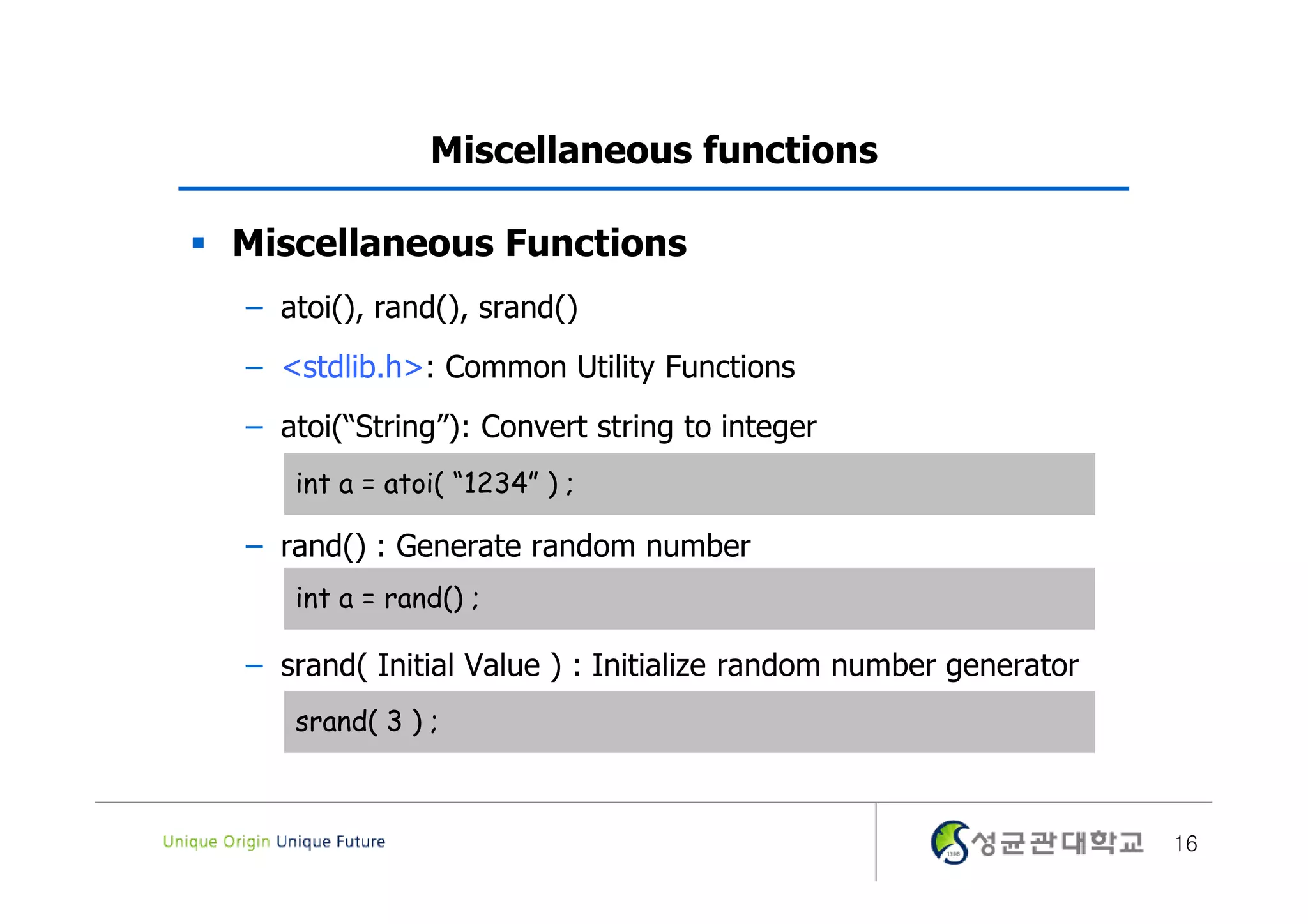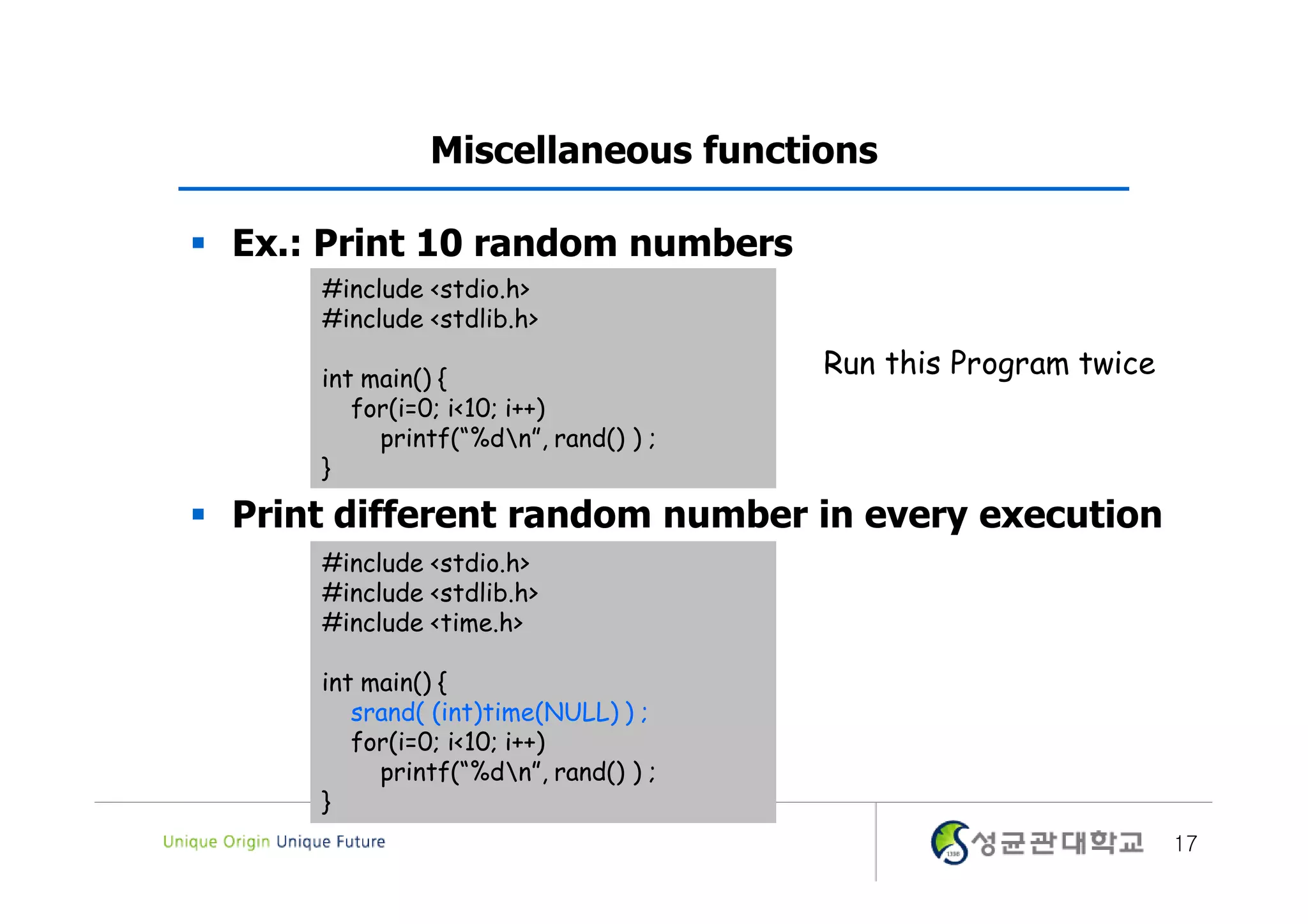The preprocessor directive #include inserts the contents of header files into the source code. Common header files include stdio.h, stdlib.h, and math.h. The #define directive defines macros that are replaced before compilation. Functions in math.h perform mathematical operations on double values. Functions in stdlib.h provide common utilities like converting strings to integers with atoi() and generating random numbers with rand() and srand().
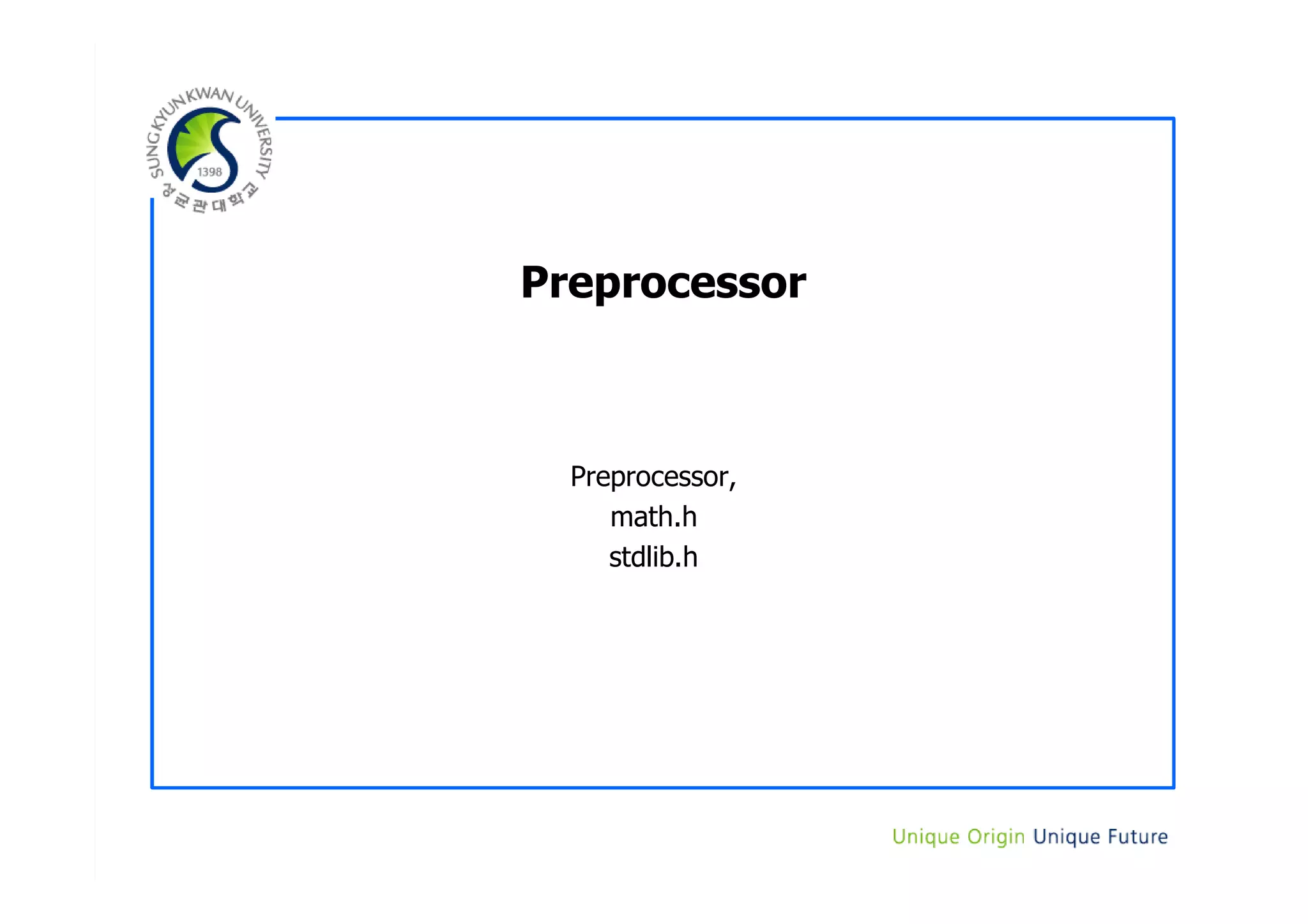
![Preprocessor Preprocessor – Permits to define simple macros that are evaluated and expanded prior to compilation. – Commands begin with a ‘#’. – #define : defines a macro [Ex] #include <stdio.h> – #undef : removes a macro definition #define PI 3.14159 – #include : insert text from file – #if : conditional based on value of expression – #ifdef : conditional based on whether macro defined – #ifndef : conditional based on whether macro is not defined – #else : alternative – #elif : conditional alternative – defined() : preprocessor function: 1 if name defined, else 0 #if defined(__NetBSD__) 2](https://image.slidesharecdn.com/3-1-preprocessormathstdlib-130318035959-phpapp01/75/3-1-preprocessor-math-stdlib-2-2048.jpg)
![Preprocessor #include <filename> or #include “filename” – Include contents of filename in this position (not modify your source file, but make a new temporary file just before compile) – <> is used if filename is in the system default directory (Most of the standard header files are in the default directory) – “” is used if filename is not in the default directory (Write the path to filename if it is not in the current directory) [Ex] Include stdio.h which is in the default #include <stdio.h> directory #include “./test/file.h” Include file.h in test directory. 3](https://image.slidesharecdn.com/3-1-preprocessormathstdlib-130318035959-phpapp01/75/3-1-preprocessor-math-stdlib-3-2048.jpg)
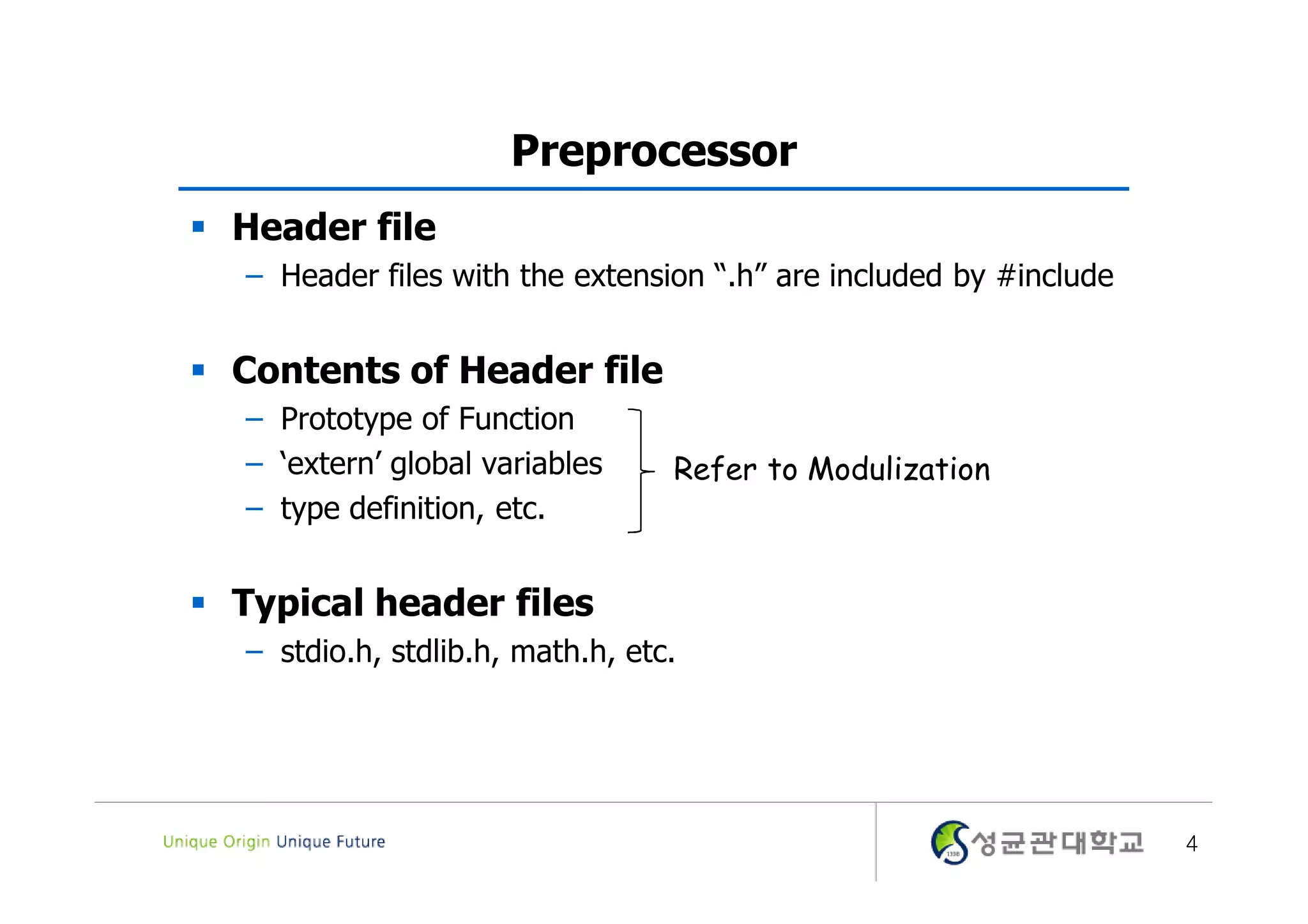
![Preprocessor #define [identifier] [replacement] – replaces any occurrence of identifier in the rest of the code by replacement. – replacement can be an expression, a statement, a block or simply anything. [Ex] #define LIMIT 100 Preprocessor regards LIMIT as 100, #define PI 3.14159 PI as 3.141592. 5](https://image.slidesharecdn.com/3-1-preprocessormathstdlib-130318035959-phpapp01/75/3-1-preprocessor-math-stdlib-5-2048.jpg)
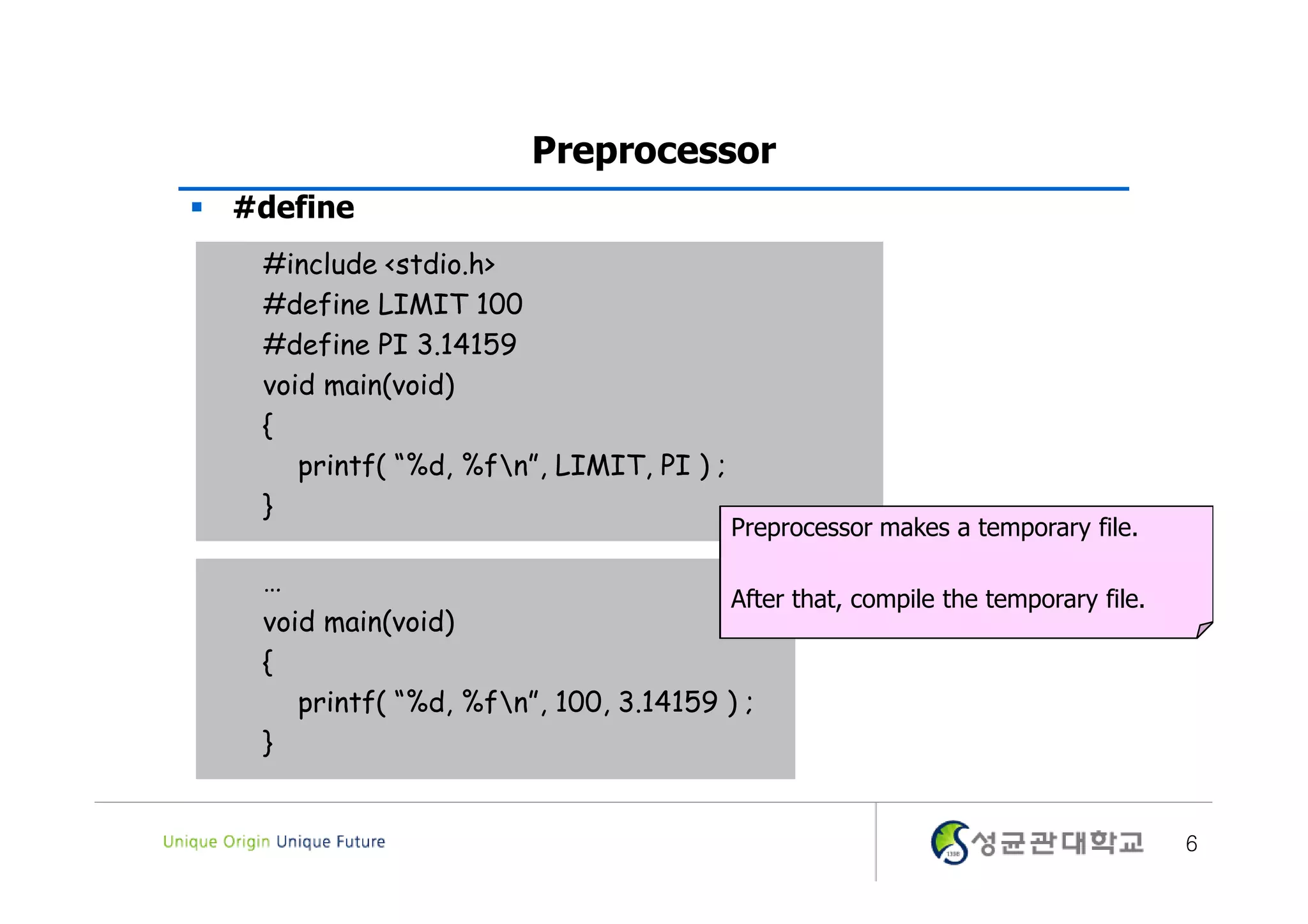
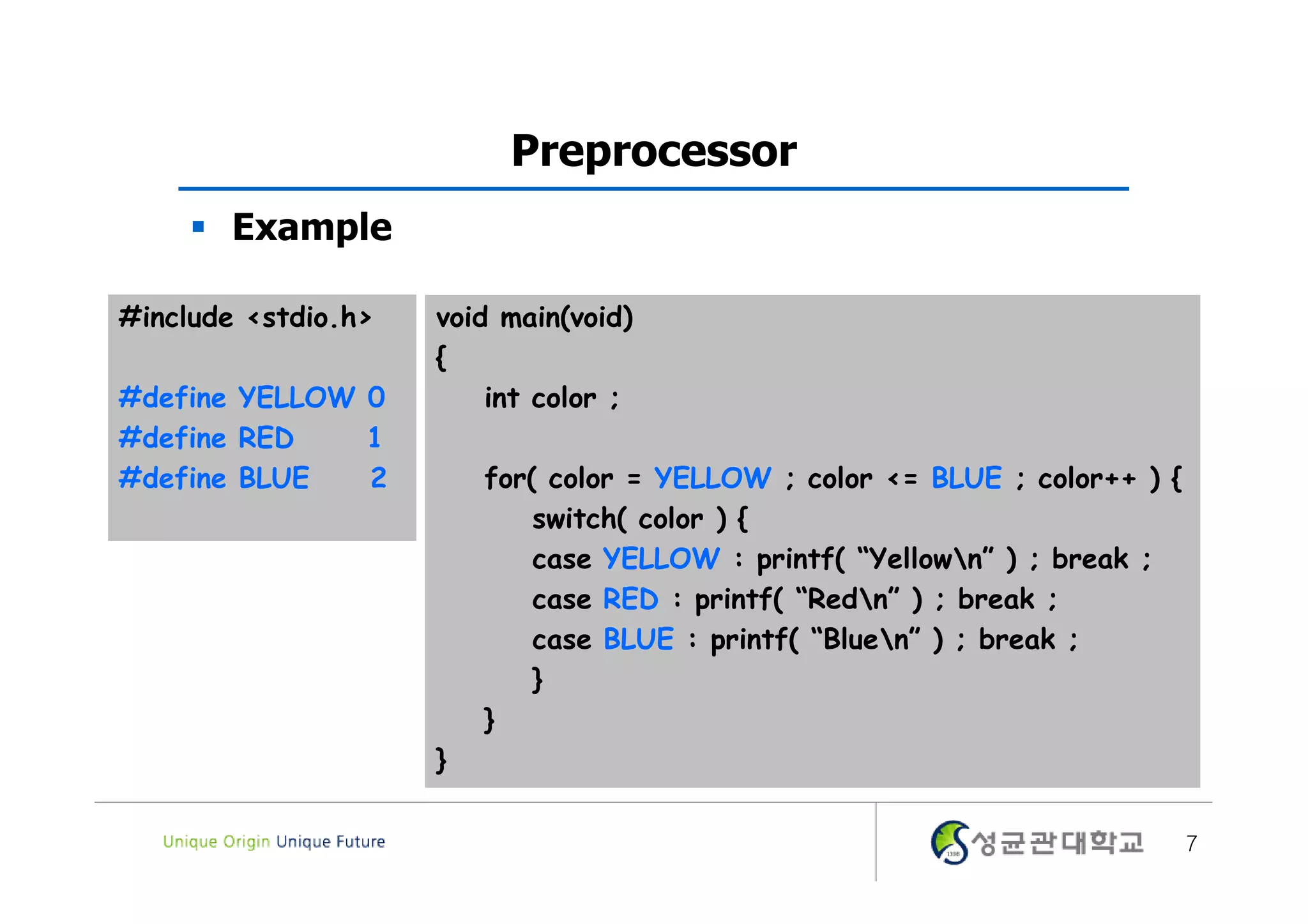
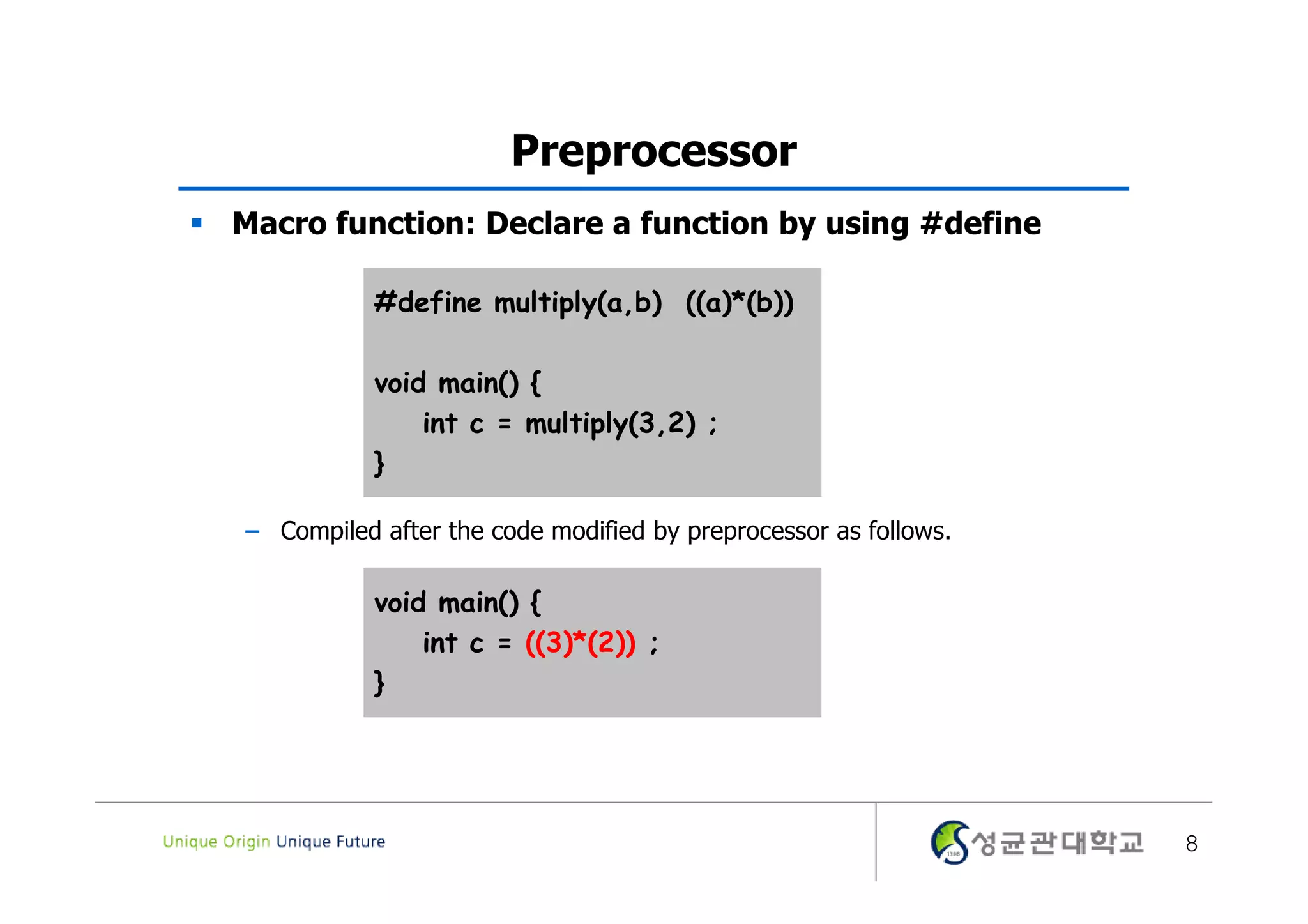
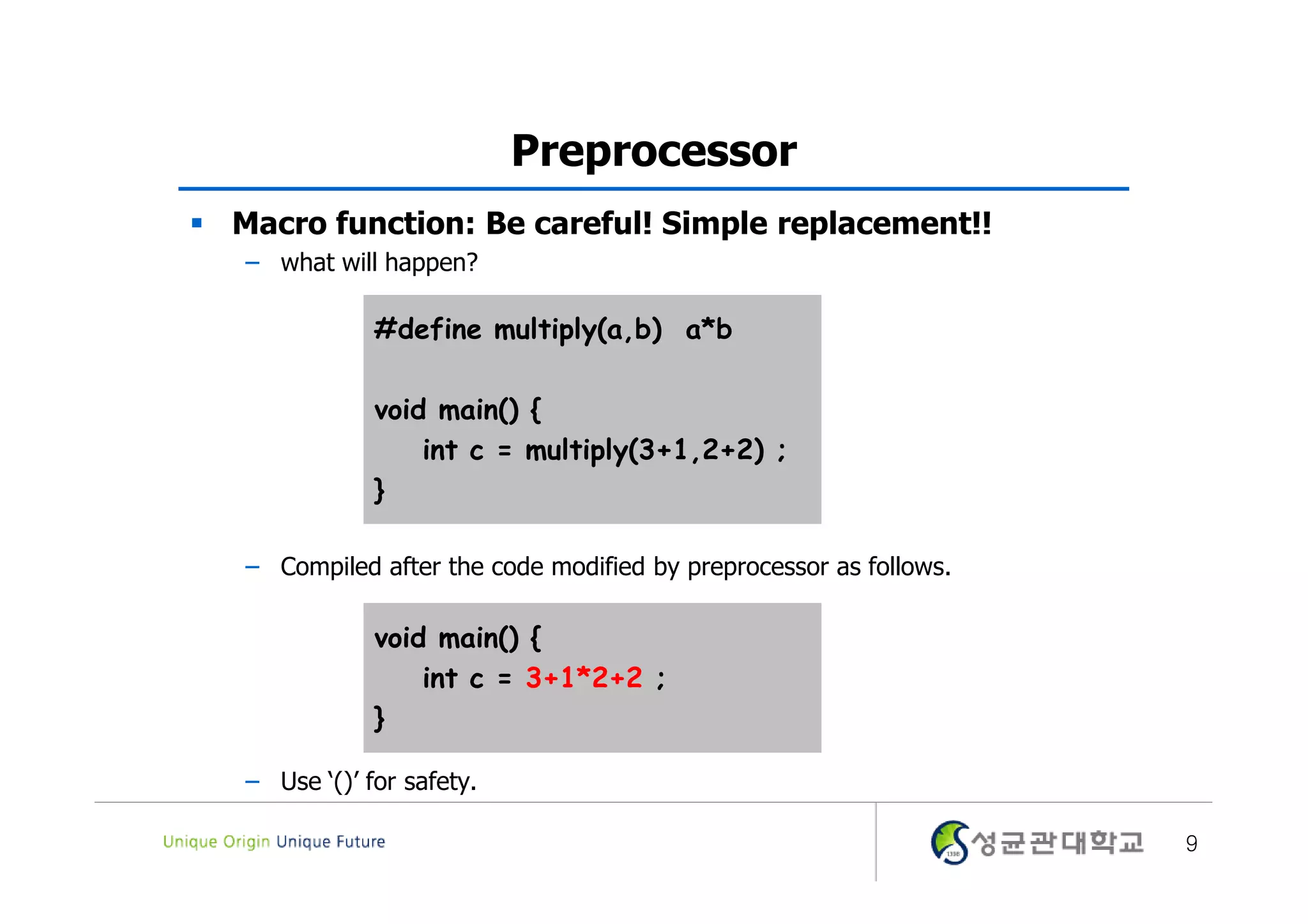
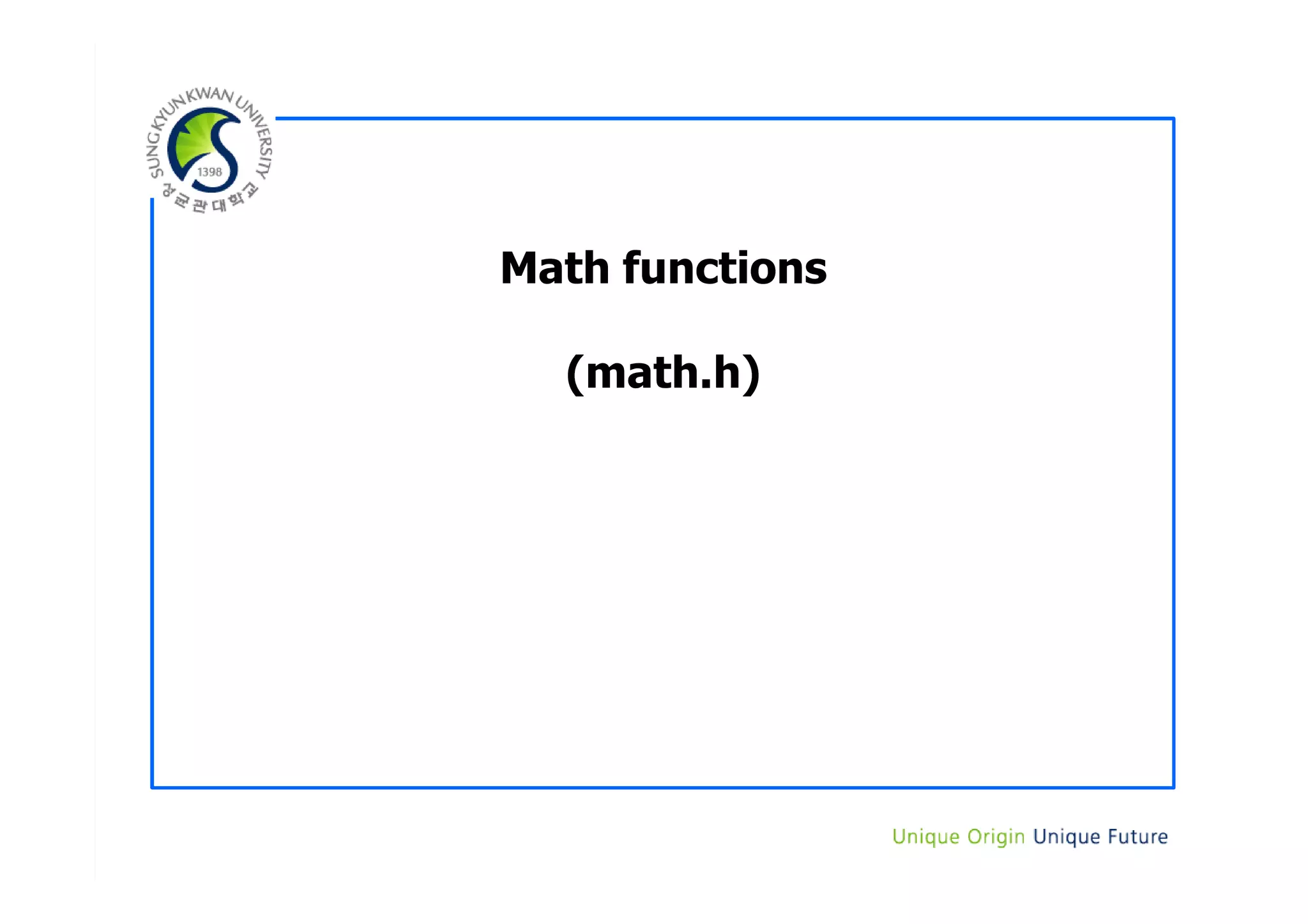
![Mathematical Functions Mathematical Functions – sqrt(), pow(), exp(), log(), sin(), cos(), tan(), etc. – Include the Header file <math.h> – All the math functions have argument with double type and return value with double type. [Ex] double sin(double); /* argument is the angle in radians */ double pow(double, double); – Give “-lm” flag when you compile this with Unix(gcc). [Ex] gcc filename.c -lm 11](https://image.slidesharecdn.com/3-1-preprocessormathstdlib-130318035959-phpapp01/75/3-1-preprocessor-math-stdlib-11-2048.jpg)
![Mathematical Functions [Ex] #include <stdio.h> #include <math.h> #define PI 3.1415926 int main() { double r = PI / (2*90); /* 180 radian = 1 degree */ int i; for(i=0; i<=90; i+=5) { printf("cos(%d) = %ft", i, cos(r*i)); printf("sin(%d) = %ft", i, sin(r*i)); printf("tan(%d) = %fn", i, tan(r*i)); } cos(0) = 1.000000 sin(0) = 0.000000 tan(0) = 0.000000 } … cos(45) = 0.707107 sin(45) = 0.707107 tan(45) = 1.000000 … cos(90) = 0.000000 sin(90) = 1.000000 tan(90) = 37320539.634355 12](https://image.slidesharecdn.com/3-1-preprocessormathstdlib-130318035959-phpapp01/75/3-1-preprocessor-math-stdlib-12-2048.jpg)

